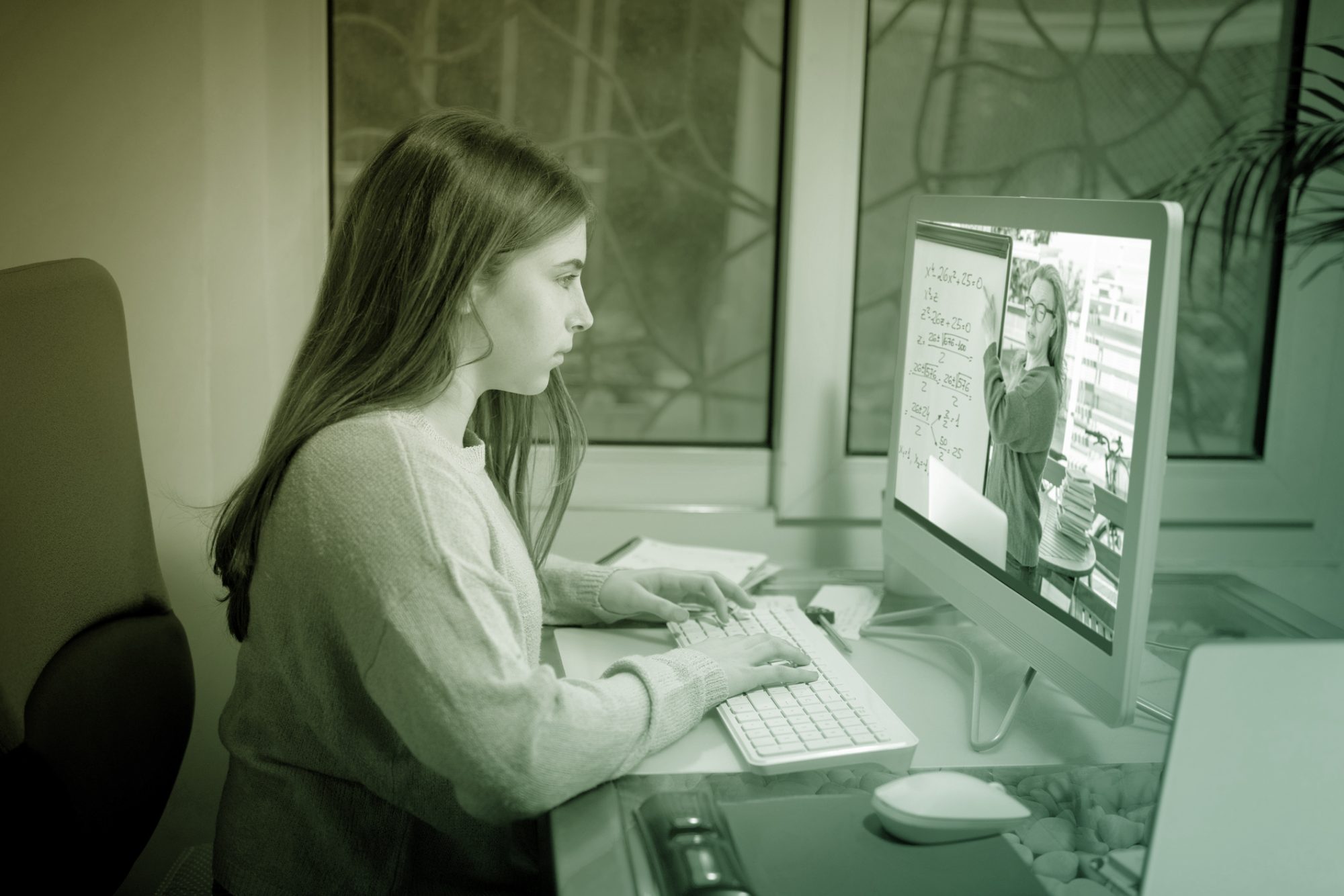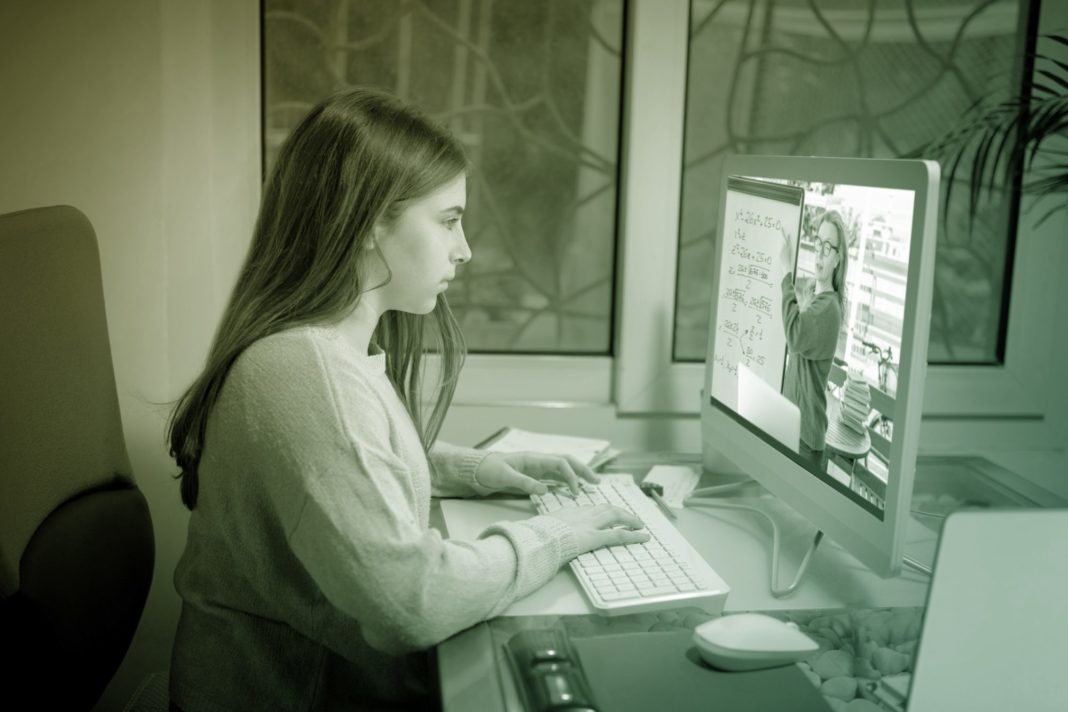
Educators have truly shown themselves as heroes during the COVID-19 pandemic, adapting to virtual learning, juggling the education and care of their own children, and staying on top of health restrictions and personal protective equipment requirements to keep themselves—and their students—safe. Now it seems like teachers are taking it one step further once again, signing on well after 3 p.m. to help their students.
I actually first heard about this trend from my sister, Heather Melms, a speech therapist at a fully remote elementary school in New Jersey. With both parents working full-time and a caretaker unable to help, one of her pre-K students couldn't participate in his online speech therapy during normal school hours. That's why my sister scheduled a weekly evening session with her student after his parents were done with work.
"I want to make sure that my kids get the services they need to succeed," she said. "I know the mother of the student is appreciative that I'm able to provide these lessons outside of school hours."
And although I'm biased and insanely proud of my sister, she's not alone here. Teachers across the country are giving more of their time for students in need and making sacrifices where they can just to help families for whom remote learning is truly an obstacle.
"I really didn't know how I was going to do this," Rachel Hodge, a mom to 5- and 11-year-old girls in Newark, New Jersey, told CNN. "I was upset with myself that I had to sacrifice her education so I could be able to work."
Like many working parents, Hodge wouldn't be able to support her younger daughter during online classes—and daycare couldn't assist at the level needed. Working full time at a hospital while also pursuing a bachelor's degree in social work, Hodge didn't know how to make it all work and was honest with her daughter's teachers that she might miss some days of school.
Hodge's daughter wasn't even the only one in this situation at the New Jersey charter school. Some students were absent for most of September and into October, so the school's administration knew they had to make a change.
"They realized that they needed something to help those kids," Meredith Eger, a teacher at the school, told CNN. "It's not just assuming that the child … is absent because they don't want to be online, or the parent doesn't want them to log on, or we just don't feel like it."
In fact, remote or hybrid learning is an issue for many parents—and especially for parents with full-time jobs. A recent survey found that 54 percent of working parents feel guilty for not being able to fully care for their kids, while 43 percent feel guilty focusing on the kiddos because they're not able to fulfill all of their work duties. Many parents have even been forced to leave the workforce or cut hours to care for their children during the pandemic but, for many others, not working isn't an option.
To help students like Hodge's daughter, the school asked for educators to volunteer to teach a second shift, from 6 to 8 p.m. Eger, who already teaches 28 children during normal school hours, volunteered to teach 11 more students in the evening. None of the kids have missed any more days because of the adjusted schedule that allows for their parents to be home to supervise.
"Now, getting into end of week nine, I'm seeing a big difference," Eger told CNN. "I'm seeing most of the kids sitting down, staying seated, their eyes are on the screen, they're doing the work."
It's clear that parents need more support to help keep their kids engaged and focused during remote learning—including flexibility from school administrators to think outside the box when it comes to scheduling. But the solution's not fool-proof, as most educators have families and responsibilities of their own. It's going to take a lot of creativity and grace to find a solution that works—or simply works a little better—for everyone, but it's worth chatting with your teacher if you're really in a bind.
So here's your friendly reminder to thank your child's teacher today. You never know what else they have on their plate—or what kinds of sacrifices they're making to help your child's peers.
































